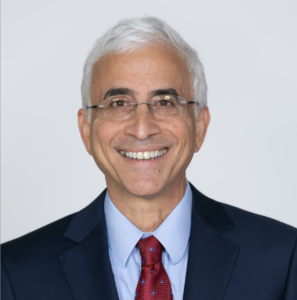Herbie Hancock, the great jazz musician, tells of an unforgettable moment in 1963 while performing with Miles Davis when he messed up big time — or so he “thought.” Tony Williams was on the drums, Ron Carter was playing bass, and Wayne Shorter was on the saxophone. For those of you familiar with jazz, it doesn’t get better than that. Hancock recalls of that hot night: “The music was tight. It was powerful. It was innovative. And we were having a lot of fun!” Then, in the middle of Miles Davis’s solo, Hancock plays the wrong chord. “It sounded completely wrong. It sounded like a big mistake.” Can you relate — in court, in a meeting, in conversation?
What happened next points to the heart of mindfulness. In Hancock’s words: “Davis paused for a second. And then he played some notes that . . . made my chord right, that made my chord correct. Miles was able to take something that was wrong and turn it into something that was right.”
For more than two decades, the legal profession has been exploring the potential role mindfulness practices can play in the law. A popular shorthand for mindfulness is “non-judgmental awareness,” meaning the stronger our mindfulness the less likely we are to be judgmental toward others (and ourselves). In this context “judgmental” is different than being discerning and able to keenly assess situations and people to adjudge guilt or innocence or otherwise advance justice. Rather, it involves the gratuitous and often harsh evaluations that readily flow when we resist something about ourselves or another person. It also can apply in the opposite direction, blindly embracing that which is compelling and extending every benefit of the doubt. In both cases, our view can be clouded by preconceptions, biases, and assumptions.
Most of us know what it is like to quickly form a judgment of another only to reverse ourselves after we gather more information. At the time, we are pretty sure we are right, trusting our intuition. Yet, it turns out we were mistaken. So too when we judge ourselves, often unduly self-critical or aggrandizing, only to realize later we weren’t seeing things clearly. This takes place so often and so quickly it can pass by unnoticed. It rarely is useful and sometimes there is a serious price to pay for this miscalculation.
While the practice of mindfulness can be beneficial for many reasons, its growing presence in the law responds to concerns for attorney and law-student wellness. Ours is a demanding profession where the ability to anticipate problems, engage in adversarial and often hostile contests, strive for perfection, and manage intense workloads can, amid time pressures, client demands, and fatigue, become counterproductive and fuel anxiety, anger, doubt, fear, depression, and overwhelm. At such times the inner critic can be relentless to ensure we succeed — or perhaps its primary mission is to make sure we do not “fail.”
Steven Keeva, managing editor of the ABA Journal at the turn of the 21st century, was concerned for the wellbeing of lawyers and saw the importance of contemplative practices, like mindfulness. In “Practicing from the Inside Out,” an article he contributed to the Harvard Negotiation Law Review’s 2002 symposium on mindfulness in law, he wrote: “[I]nterest in the lawyers’ inner life appears to be growing. As something of a lightning rod for that interest, I have come to see it as a natural outgrowth of the distressing level of unhappiness in the profession.”
An exploration of one’s inner life through the lens of mindfulness invites skillful observation of the inner landscape. This includes the coming and going of thoughts, feelings, and body sensations, being open and receptive to whatever arises, be it pleasant, unpleasant, or neutral. In so doing, we witness the expression of ourselves, moment by moment with a non-judgmental curiosity. It is a compassionate practice. Practicing any of a variety of mindfulness exercises offers a roadmap to this inner terrain and can lead to beneficial changes in the quality of our well-being, of our relationships with others, and to the satisfaction we experience engaging in our life’s work.
As noted above, our thoughts can contribute mightily to the quality of our wellbeing. When the inner critic is quiet, or generous, we feel good. When harsh and unforgiving, we suffer. Our lives can become a chaotic and seemingly uncontrollable roller-coaster of emotion when caught in the meanderings of the mind, which tends to wander off to unsatisfying terrain of past and future, often without our even noticing it. To become more self-aware of the inner critic can go a long way to being free from its painful messaging. After all, thoughts are not facts.
We do not practice law in isolation. Much like a jazz quintet, we work together. And much like a jazz performance, the product evolves as we progress, taking twists and turns no one could predict that influences strategy, timing, content, and execution. To work as a team, to respect each other, and to appreciate that what we are creating is bigger than ourselves, opens the door to possibilities and feelings of connection that render the inner critic in proportion to its usefulness.
Do you think Hancock had made a mistake when he played the “wrong chord”? His inner critic says he did. No doubt he thought he had. He was comforted and awed by Davis’ genius to turn the mistake into something that was right. You can watch Hancock recall this pivotal moment in his life, an experience that planted a seed of insight that would continue to blossom in years to come. Hancock notes, on further reflection: “What I realize now is that Miles didn’t hear it as a mistake. He heard it as something that happened. Just an event. And so that was part of the reality of what was happening at that moment.”
How might this insight bear on moments when you are sure you’ve blundered, or someone you are working with has made a mistake or failed? And what are the implications of labeling events in this narrow way? What set of possibilities might emerge when we free ourselves, even if just a little, from the hyper-critical, judgmental assessment that arises again and again when something doesn’t go according to plan?
Piano, drums, trumpet, and sax. Different voices all coming together in ways we can only know and fully appreciate as they are expressed. Might we learn from Hancock’s experience and channel a little bit of Miles Davis in our interactions with others — and perhaps especially with ourselves. Steven Keeva invites us to consider our “inner-life.” Mindfulness practices offer us one vehicle for doing so. For Herbie Hancock, Miles Davis “taught me a very big lesson not only about music, but about life.” Perhaps this summer we can work on our own internal jazz performance — one whose expression is most beautiful when we treat ourselves as worthy of our achievements and good enough, just as we are — to be human.

